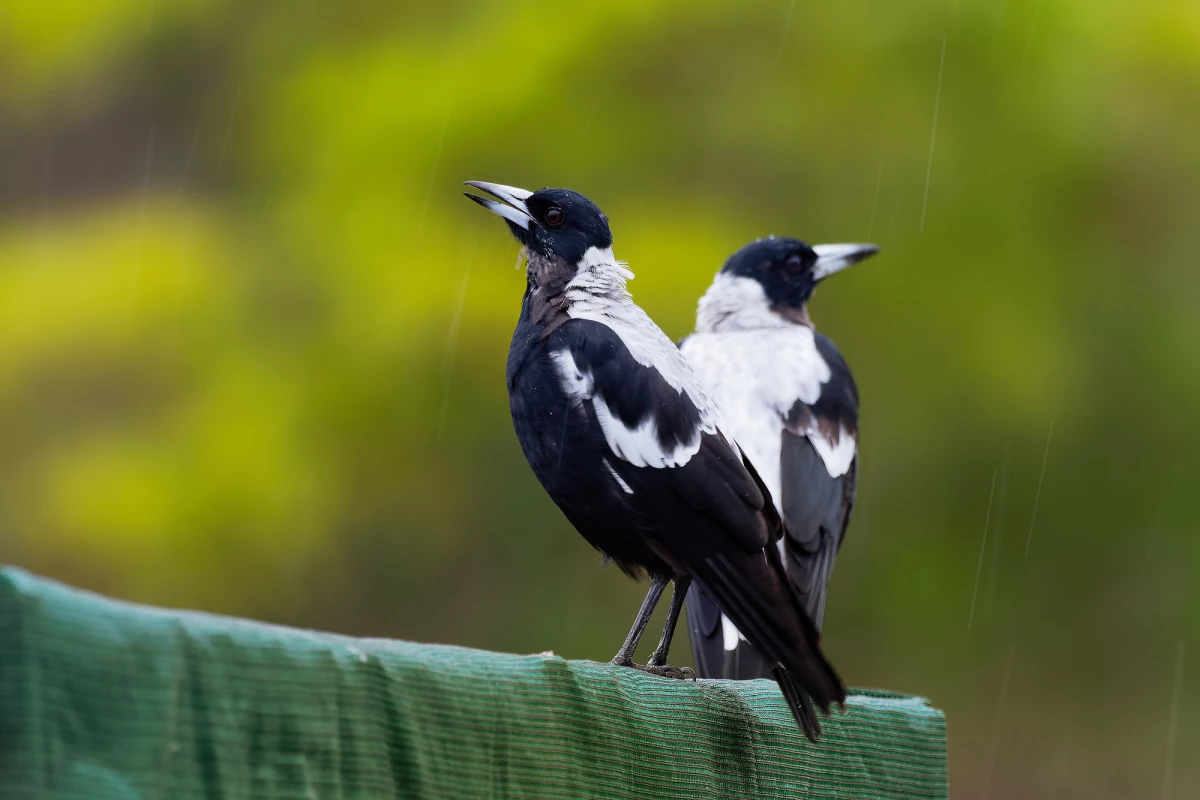Lightweight and sophisticated tracking devices have made it possible to study the behavior of birds in all kinds of useful ways, for example, helping keep them safe from ships or monitoring their changing migration patterns in a warming world. For a research team in Australia, however, these efforts haven't quite gone to plan, with a group of tagged magpies promptly removing each other's tracking devices in a previously unsighted display of altruism.
The research was led by animal ecologists from the University of the Sunshine Coast, who were looking to study the movement and social dynamics of Australian magpies. To do so, the team actually designed a new type of tagging solution in which a harness was used to secure the tracking device to the bird, allowing them to use one with a large enough battery and storage capacity, despite the relatively small size of the animal.
Further, they trained a group of magpies to use an outdoor ground feeding station where the battery could be recharged and the data could be downloaded wirelessly. Alternatively, the tracker could be released from the harness by a magnet. This harness was purposefully designed to be strong and difficult to remove, requiring either the magnet or some high-quality scissors.
The tracking devices weighed less than a gram (0.03 oz) and were successfully fitted to five magpies, with the scientists excited to learn the answers to questions such as how far were the magpies traveling, and what did their movement patterns and schedules look like. But before long, the plans of the researchers were thwarted.
Within 10 minutes of fitting the final tracker, the team watched on as an adult female used her bill to remove the harness from a younger bird in the group. A few hours on, most of the other trackers had been removed. By day three, they were all gone. It's unclear whether one bird was helping out all the others, or if they shared the unclipping responsibilities between the group, but this is the first instance the scientists know of where birds have cooperated to remove tracking devices, and the first example of altruism in magpies.
It appears that the magpies see the trackers as a form of parasite that needs to be removed. This very rare behavior is known as "rescuing," and the scientists say the only similar example they have found in literature is a group of Seychelles warblers freeing one another from sticky Pisonia seed clusters.
Magpies are known to be highly intelligent, living in groups and defending their territory together through actions like swooping. Their ability to remove the tracking devices is another impressive example of collective problem-solving, though it has presented a speed bump for the scientists who consider these tracking efforts to be crucial to conservation of the species, which is vulnerable to heatwaves increasingly brought on by climate change.
The research was published in the journal Australian Field Ornithology.
Source: University of the Sunshine Coast via The Conversation




